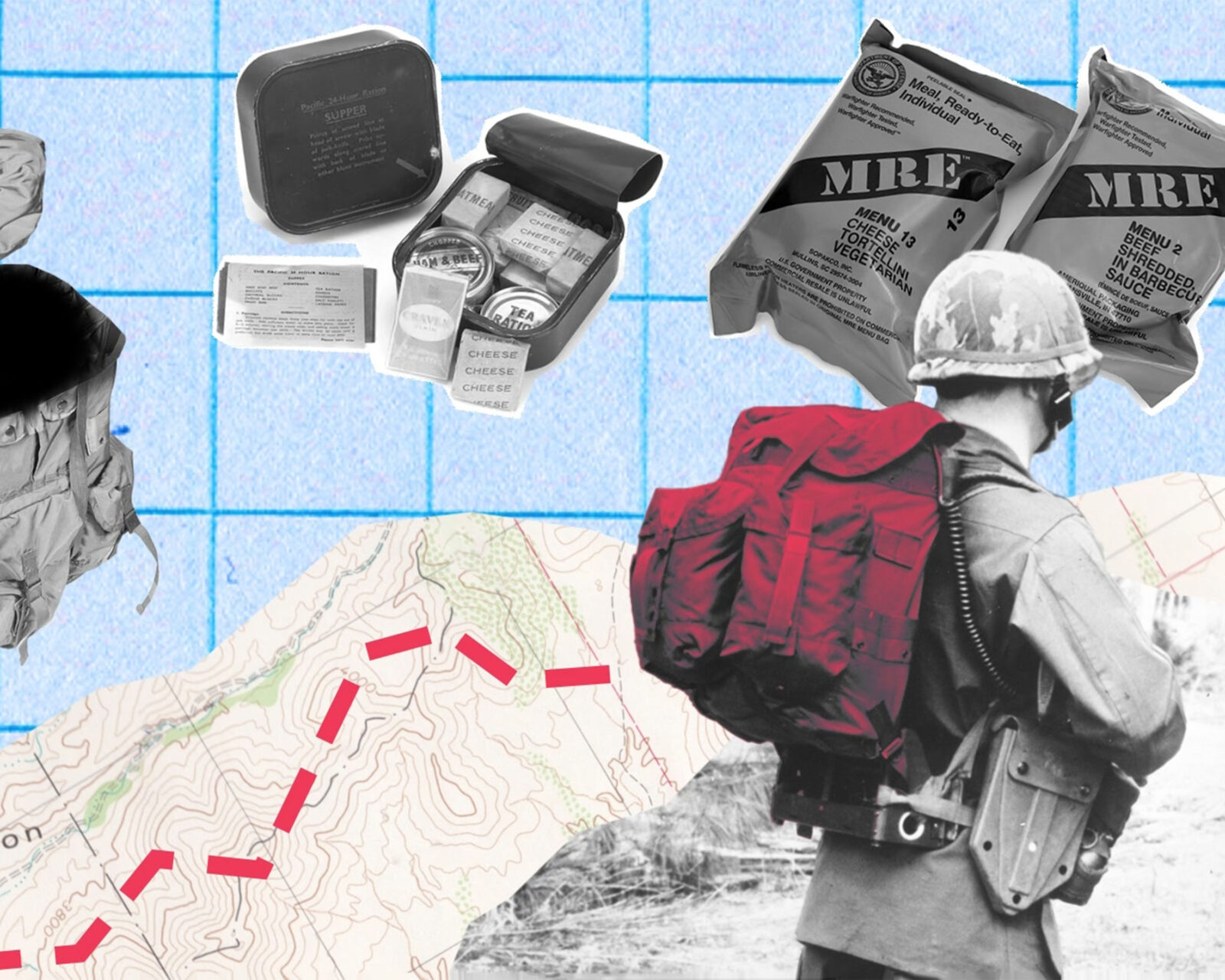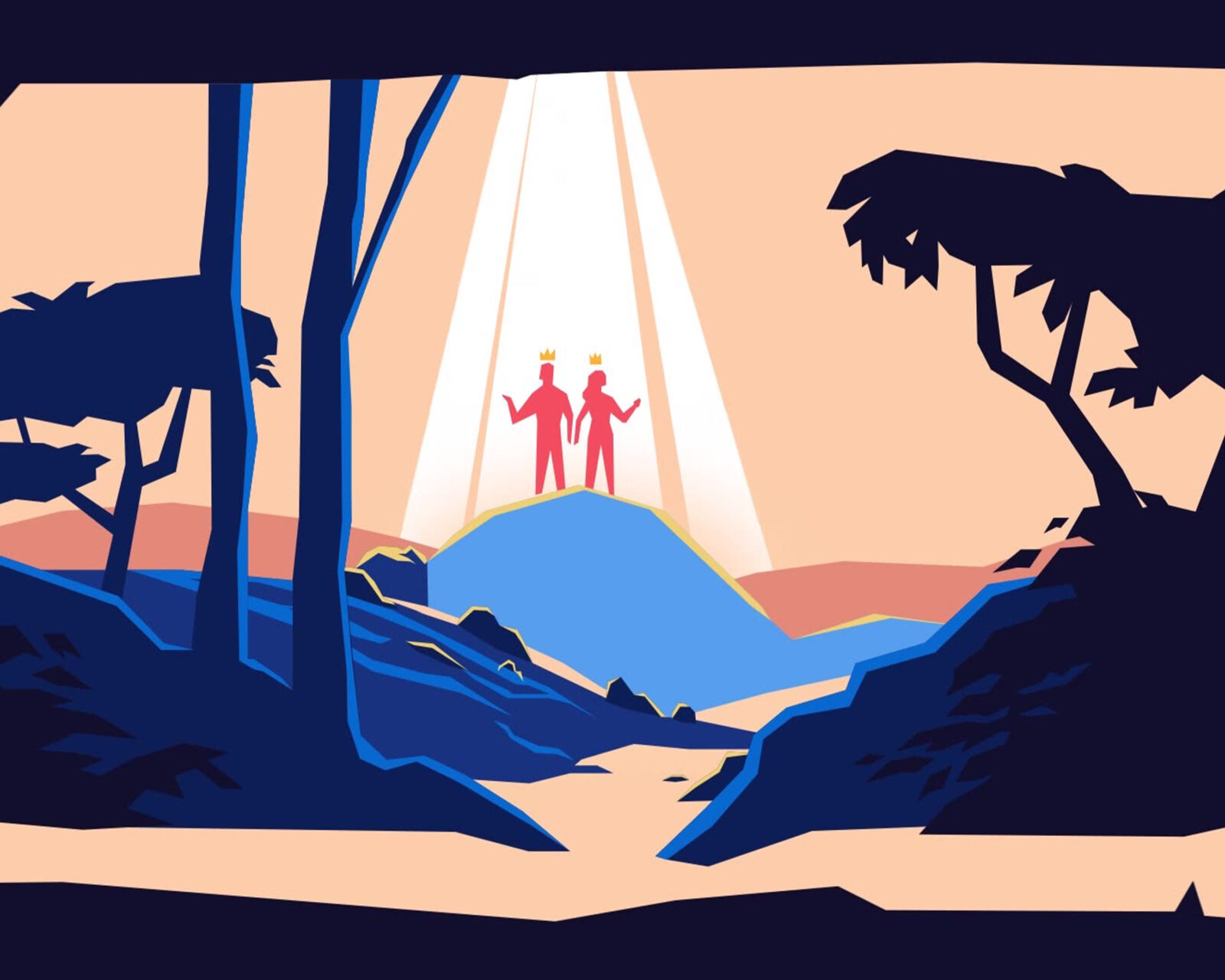How the Eucharist is “food for the journey”
Proclamation

How are we sustained in a “super-abundant way” through our spiritual journey and adventure of life? The Eucharist.
WatchThrough the sacrament of the Eucharist, Jesus gives us himself in a radical way.
Proclamation

How are we sustained in a “super-abundant way” through our spiritual journey and adventure of life? The Eucharist.
WatchConnection

There’s a very special way that God comes close to us in the Eucharist. The Catechism tells us that Jesus’ Eucharist presence is “real” because he is fully and totally…
WatchConnection

Jesus gives us Himself in the Sacrament of the Eucharist. This is such a special, unique, and life-changing gift. But it might make you wonder… Am I worthy to receive…
WatchEdmund: In the Bible, one major theme that resurfaces over and over again is actually a big question.
Emily: And it’s burning on every human heart. It’s the question: Is God really with us?
Edmund: God freed the Hebrews from slavery in Egypt through miraculous events. And even as they were journeying through the desert there were frequent moments where they wonder if God is actually there with them, and if he cared.
Emily: Even for the people of Israel, who literally saw the miraculous events God used to save them from Egypt, it was still hard at times to trust God.
Edmund: And this leads us to the second theme that resurfaces again and again in the Bible: God desires to give himself to us. In a way this is a response to the deepest question on the human heart.
Emily: God wants to be Emmanuel, God with us. And he does this in the Sacrament of the Eucharist.
Edmund: The Eucharist is one of the seven sacraments, and it’s the final of the three sacraments of initiation. It completes Christian initiation or how people enter into communion with God and the Church.
Emily: But let’s brush up on some of the attributes of God so we can really understand this better.
Edmund: God is transcendent. Meaning God is beyond us and above us and greater than us. He’s outside the bounds of time and space. And he can’t be fully comprehended.
Emily: Ah, but we can apprehend God. The word apprehension comes from the Latin prehendere, which is to “grab” or “catch”. It means we can perceive things. To comprehend God would mean to fully understand him, which we can’t do.
Edmund: So we can’t fully understand and know God, but we can perceive him. We can catch glimpses of him.
This is what I think is so amazing about God. It’s the fact that God is not only transcendent but also immanent.
Emily: Immanence means God is actually, and has become, radically present to the world. The feast of the Epiphany celebrates this immanence of God.
Edmund: The good news of the Gospel is that in the Sacrament of the Eucharist, under the appearances of bread and wine, Jesus gives us himself! Like the mana in the desert, Jesus is the bread from heaven!
Emily: The Catechism says in paragraph 1324 “The Eucharist is “the source and summit of the Christian life. The other sacraments, and indeed all ecclesiastical ministries and works of the apostolate, are bound up with the Eucharist and are oriented toward it. For in the blessed Eucharist is contained the whole spiritual good of the Church, namely Christ himself.”
Edmund: The Eucharist completes initiation into the body of Christ, the Church. It’s what all the sacraments point to and flow from. Which means the Christian life, following Jesus, points to and flows from the Eucharist. It’s the only sacrament of initiation we can receive over and over again. And we’re given opportunities to renew our communion with Jesus Christ every time we receive Jesus in the Eucharist.
Emily: Okay, but what happens when Jesus gives us himself the Eucharist? To understand this, let’s break down these church-y words, so we can understand better what the Eucharist means for our lives.
Edmund: First the word “Eucharist” itself. If you visit the country of Greece today, you will hear storekeepers express gratitude with a single word: Eucharisto! When we keep in mind the origin of the word “Eucharist,” we’ll appreciate one of the primary reasons we go to Mass: to say “thank you!”
Emily: So Eucharist means thanksgiving. It’s called this because it is a sacrifice of thanksgiving to God. In the Old Testament sacrifices were made to God in thanksgiving, or to cleanse us of sin. The term the holy sacrifice of the Mass, is also used, since it completes and surpasses all the sacrifices of the Old Testament. The Eucharist wipes away venial sin, and preserves us from future sin.
Edmund: It’s also called the Lord’s Supper and the Breaking of Bread, because Jesus instituted the Eucharist before his Passion at the Last Supper.
Emily: It’s also called Holy Communion, because by this sacrament we unite ourselves to Christ. This is why Saint Augustine once said, “we must receive the Eucharist worthily because we become what we receive” – that is, we are more deeply incorporated into his Body, the Church, and we become the Body of Christ for others!
Edmund: Jesus is truly, really present in the Eucharist, body, blood, soul, and divinity. Even though to our eyes the bread and wine still appear to be bread-like and wine-like, they have BOTH been substantially changed into Jesus.
Emily: And the Eucharist remains Jesus even after the Mass. This is why we give such reverence and care for the Eucharist!
Edmund: Jesus said: “I am the living bread that came down from heaven; if any one eats of this bread, he will live forever; … he who eats my flesh and drinks my blood has eternal life and … abides in me, and I in him” (Jn 6:51, 54, 56
The Eucharist is also called the Eucharistic assembly. This is because the Eucharist unites us to the body of Christ: all Christians everywhere, on earth, in purgatory, and in heaven.
Emily: Finally, the Eucharist is also celebrated in what we call “Holy Mass.” It is called this because the liturgy in which the Eucharist is celebrated concludes with the sending forth in Latin “Ite Missa est”. Jesus gives himself to us in the Eucharist and commits us to the poor and strengthens us to be sent out to bring Jesus to the world!
Edmund: The Eucharist is the source and summit of the Christian life. Jesus gives us himself in a radical way. We are able to come into communion with the body, blood, soul, and divinity of Jesus Christ. If we’re wondering where God is, if we’re feeling lonely, or if we need strength to follow Jesus, we can turn to the Eucharist and be thankful that Jesus gives us himself in the Sacrament of the Eucharist.
U.30 — CCC 1716-1729

The language in the Beatitudes might seem counterintuitive but the grace that comes through the experience blesses us, and this is what leads to true happiness.
WatchU.29 — CCC 2052-2082

By giving us the Ten Commandments, God clearly defined what actions are sinful and evil so that we can turn away from sin and choose the path of love and…
WatchU.28 — CCC 1949-2051

Through grace, we can respond to God’s invitation to be justified through Jesus and the power of the Holy Spirit.
WatchU.27 — CCC 1803-1948

There are human virtues (prudence, justice, fortitude, and temperance) and theological virtues (faith, hope, and charity).
WatchBy submitting this form you consent to receive emails about Real+True and other projects of OSV.